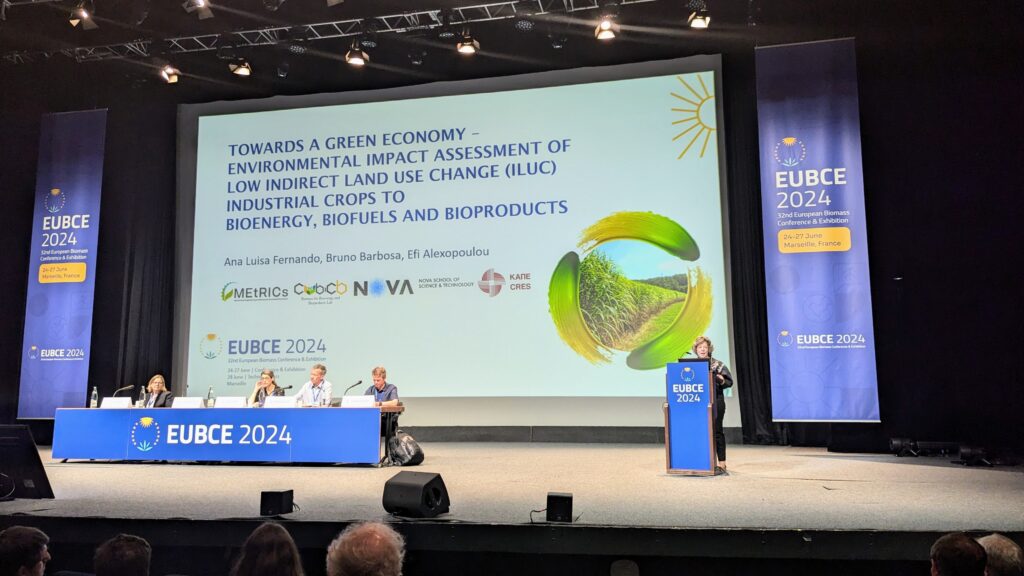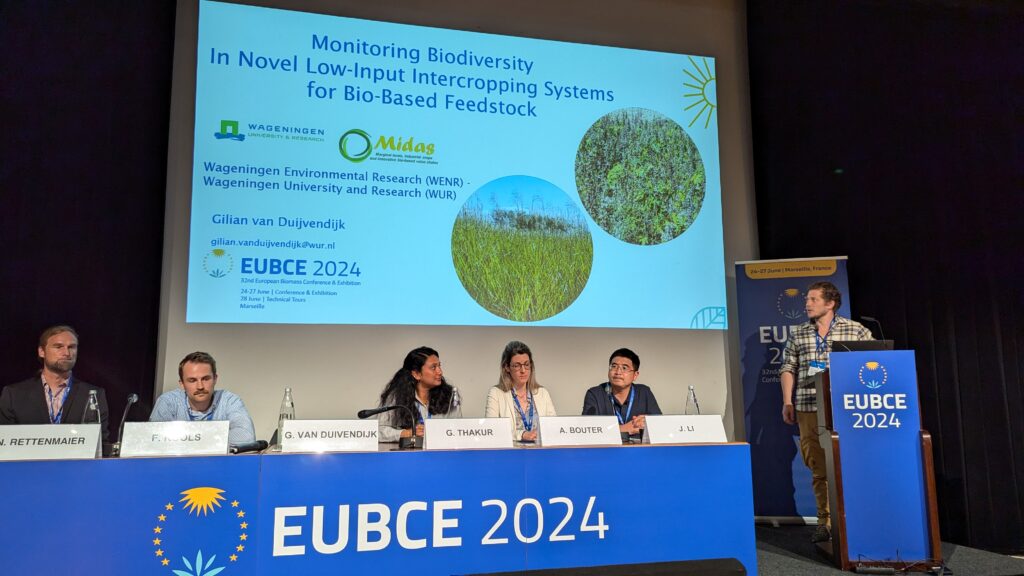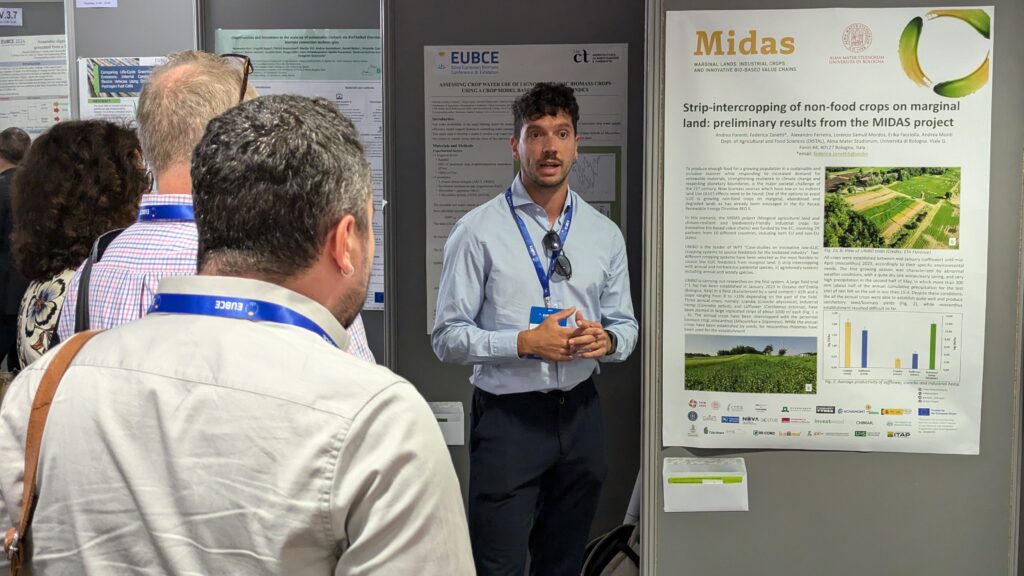In a previous blog post, we announced that MIDAS would be showcasing a diverse range of research findings at the European Biomass Conference and Exhibition (EUBCE) 2024. We are pleased to report that our presentations were well-attended and generated significant interest.
Here’s a recap of the MIDAS presentations at EUBCE 2024:
Environmental Impact Assessment of Low Indirect Land Use Change (ILUC) Industrial Crops to Bioenergy, Biofuels And Bioproducts by Ana Luisa Fernando from Universidade Nova de Lisboa examined the environmental impact of cultivating low-ILUC industrial crops on marginal lands. The presentation focused on miscanthus, hemp, crambe, and castor bean, exploring their potential to produce sustainable bioenergy, biofuels, and bioproducts while minimizing negative environmental effects.

Location and Main Characteristics of Marginal lands in Europe in 2050 by Berien Elbersen, Wageningen Environmental Research, presented the MIDAS project’s work on mapping current and future marginal lands in Europe, considering the latest data and climate change effects. The presentation also discussed the overlapping of these lands with abandoned and degraded areas, areas affected by soil and wind erosion, as well as the presence of specific ecosystem services.
SLIDES
Monitoring Biodiversity In Novel Low-Input Intercropping Systems for Bio-Based Feedstock by Gilian van Duijvendijk, Wageningen Environmental Research, presented findings about the first year of monitoring the insect biodiversity in innovative cropping systems of industrial crops at the MIDAS demo sites across Europe. These are only the preliminary results referring to the 2023 monitoring campaign, this summer a second campaign has been conducted and the new data are being now evaluated. Results will be available later this year.

Sustainable Biodiversity-friendly Intercropping for Bio-Based Products in Central Northern Spain Under Marginal Land Conditions: Firsts Results of the MIDAS Project by Carlos Sixto Ciria Ramos, CIEMAT, presented the intermediate results of the intercropping trials in Spain.
Strip-Intercropping of Non-Food Crops on Marginal Land by Andrea Parenti, University of Bologna, presented the preliminary results about strip-intercropping of industrial crops systems in one of the MIDAS demo sites in Italy.

Agroforestry System: Opportunities And Constraints of Tree-crop Interactions by Luca Cozzolino, CREA IT, presented the MIDAS agroforestry trials conducted in Italy. The field trial alternates rows of a 12-year-old poplar plantation with annual oil crops grown in between the rows.
Subsurface Water Retention System for Industrial Crop Sustainable Production. Results from Guayule by Simone Bergonzoli, CREA-IT, presented the preliminary results of trials using Subsurface Water Retention Technology (SWRT) on guayule in Spain.
Identifying and Evaluating the Implementability of Value Chain and Webs Based on Crops Cultivated on Marginal Lands in Southern and Central Europe: an Early Stage Approach by Valentin Schlecht, University of Hohenheim presented an early-stage approach to identify promising bio-based value chains in Southern and Central Europe.
These presentations highlighted the significant progress that the MIDAS project has made in developing sustainable bio-based value chains on marginal lands.

